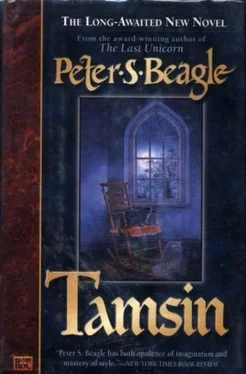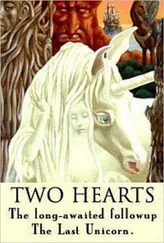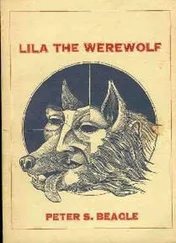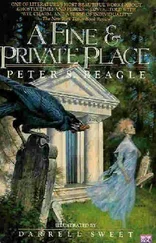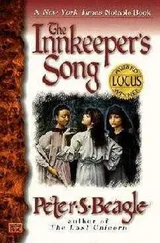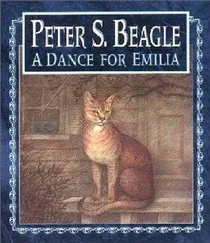Peter Beagle - Tamsin
Здесь есть возможность читать онлайн «Peter Beagle - Tamsin» весь текст электронной книги совершенно бесплатно (целиком полную версию без сокращений). В некоторых случаях можно слушать аудио, скачать через торрент в формате fb2 и присутствует краткое содержание. Год выпуска: 1999, Издательство: ROC, Жанр: Фэнтези, на английском языке. Описание произведения, (предисловие) а так же отзывы посетителей доступны на портале библиотеки ЛибКат.
- Название:Tamsin
- Автор:
- Издательство:ROC
- Жанр:
- Год:1999
- ISBN:нет данных
- Рейтинг книги:3 / 5. Голосов: 1
-
Избранное:Добавить в избранное
- Отзывы:
-
Ваша оценка:
- 60
- 1
- 2
- 3
- 4
- 5
Tamsin: краткое содержание, описание и аннотация
Предлагаем к чтению аннотацию, описание, краткое содержание или предисловие (зависит от того, что написал сам автор книги «Tamsin»). Если вы не нашли необходимую информацию о книге — напишите в комментариях, мы постараемся отыскать её.
Tamsin — читать онлайн бесплатно полную книгу (весь текст) целиком
Ниже представлен текст книги, разбитый по страницам. Система сохранения места последней прочитанной страницы, позволяет с удобством читать онлайн бесплатно книгу «Tamsin», без необходимости каждый раз заново искать на чём Вы остановились. Поставьте закладку, и сможете в любой момент перейти на страницу, на которой закончили чтение.
Интервал:
Закладка:
Sally hadn’t told him about Tamsin—she couldn’t have. She’d simply gotten his phone number and called to say that her daughter was very interested in the history of Stourhead Farm and the Willoughby family. And there he sat, smiling a little over the rim of his teacup, and getting straight to the heart of things first crack. I said, “Well, I didn’t mean Tamsin—I mean, not just Tamsin—”
“Of course you do,” Mr. Guthrie interrupted me. “Tell me, does she still smell of vanilla?” I sloshed tea into my saucer, and Mr. Guthrie’s smile got wider. He said, “I’m sorry, my dear—that was a silly parlor trick, and I do apologize. But you see, Tamsin Willoughby has appeared a number of times over the last three centuries. Always to young women—girls, really, none very much older than yourself—and always accompanied by the scent of vanilla.” Mr. Guthrie was born in the north of England, not the west, so his accent isn’t really Dorset, and people tease him about it, but I liked it right away. He said, “Please do tell me about her.”
I didn’t tell him everything I knew, but just to be able to talk about Tamsin at all was like early spring in Mr. Guthrie’s little parlor. When I said that I’d spoken with her, and that we’d gone walking together, he didn’t answer me for a while. Then he said, very carefully, “As a rule, Miss Gluckstein—ah, Jenny, then—as a rule the sightings of Tamsin Willoughby have usually been very brief, and always occurred within the walls of the Manor itself. And no one has ever reported—ah—any sort of actual conversation with her. Are you absolutely sure…?” He let his voice trail away then, the way people do when they’re too polite to call you a liar, so they offer you a way out. Like in all those English movies Sally took me to, when they leave the villain alone with a drink and a pistol. I said that I was telling the truth, and he gave a sigh, leaned back in his chair, and didn’t speak for another while. But it was a different kind of not speaking.
“The story of Tamsin Willoughby,” Mr. Guthrie said, “is to my mind the most romantic legend between Winchester and Exeter. I call it a legend because the people involved were most real, but every other aspect of the tale is guesswork, there’s no other word for it. It begins with a chap who was apparently engaged to play to her while she was having her portrait painted—”
“Edric Davies,” I said. I didn’t mean to say it—it just came out of me, that fast. Mr. Guthrie looked at me. I said, “He was Welsh—I think .” Because it was his story to tell, after all.
“Edric Davies,” Mr. Guthrie said. “Yes. Yes, he was indeed a Welshman. Of course they fell in love, quite properly—what sort of a legend would this be if they didn’t?—and made plans to elope together, since her family would never have consented to such a marriage.” He stopped, narrowing his eyes, which made them look even brighter. “You know all this, I can see.”
I nodded. “She told me,” I said. “I’m really not making it up, Mr. Guthrie.”
Mr. Guthrie sighed again. “Eigh, dear, I rather wish you were . Because I know what to do with fabrications, Jenny, with all the ridiculous nonsense that always collects around stories like this one of Tamsin Willoughby. I sieve them out, like one of your American goldminers—I shake them up and turn them on their heads, and I shake them some more, and in time all the silliness and all the superstition sift through and sink. And most of the time there’s nowt more than that to the business, but once in a while, once in a while… some bit of gold is left behind, and that’s what I collect, do you see? Those tiny flecks of inexplicable truth that won’t dissolve, won’t wash away.” He smiled again, a little sadly now. “It’s not a very big collection, for as long as I’ve been at it, but you’re welcome to what’s there.”
As far as he knew, Edric Davies had been lost in Monmouth’s Rebellion. When I told him about Edric’s student, Francis Gollop, being the one who went, and how Edric had gone after him and brought the body home by night, he gave a funny, nice little yelp, the way Julian still does when the crossword puzzle suddenly falls into place. “ That accounts for it!” He set his cup down too hard, spilling tea himself, and clapped his hands. “ That accounts for it!”
“What? Accounts for what?”
“Why, for the way he disappears from the story,” Mr. Guthrie practically shouted. He hopped to his feet—then saw I didn’t have a clue what he was carrying on about, and he laughed and sat down again. “Jenny, in all the years I’ve been asking Dorset people about the ghost stories their parents and grandparents told them, I’ve come across four versions of the tale of Tamsin and Edric. And in every one of them, Edric vanishes into the Rebellion and Tamsin never learns what becomes of him—nobody does. Maybe he was killed, maybe Judge Jeffreys had him hanged or transported; maybe he simply fled to safety in Wales. I must tell you, it’s never felt right to me. Wrong shape to the story, Edric never coming back. Wrong shape.”
“Well, he did,” I said. “He came back, all right, and he buried Francis Gollop in a wheatfield. But I don’t know what became of him after that. Tamsin won’t ever say.”
“She died,” Mr. Guthrie said. “Maybe that’s all that happened.” There was one little sugary cake left, and he waved it to me, but I wrapped it in a paper napkin to take home to Julian. A kid gives you his damn gorilla, you have obligations.
I said, “I don’t believe that. And you don’t either.” Mr. Guthrie didn’t answer right away. Clem wandered over and slobbered on my shoes. I scratched his ears, keeping Julian’s cake well out of range. Once Mr. Guthrie started to say something, but then he didn’t. The old stone cottage got really quiet, but not scary. You could hear a clock ticking somewhere, and smell something on the stove, and a bird scratching for shelter under the eaves. I studied a framed photograph on an end table: three little girls, each one holding a doll. They must have wanted them in the picture, too, the same way I still don’t like to be in a photo without Mister Cat. I need all the diversions and evasive maneuvers I can get.
“Do you know anything about Judge Jeffreys?” Mr. Guthrie finally asked me. I told him what Tony had told me about the Bloody Assizes, and he nodded his head, but he was sort of shaking it at the same time. He said, “You can’t imagine him. You can’t imagine what he did here. The Irish still damn each other with the Curse of Cromwell, because of the terrible way he drove them off their land, and the thousands and thousands who were killed when they resisted. We in Dorset could call down the Curse of Jeffreys on our enemies, but we never would—no one could deserve that, and it’s no name to be conjuring with. Oh, I talk about him to the tourists all the time, but I don’t think about him, do you see? I don’t like to think about him.”
He was looking flushed and agitated, and old for the first time. He saw me seeing it and snapped his fingers to call Clem, calming himself some by smoothing the dog’s messy coat. I almost didn’t hear him when he said, “Jeffreys knew the Willoughbys. I’m sure he knew Tamsin.”
My entire inside turned to ice-cold mashed potatoes, that fast. When I could talk, I said, “No. No, he couldn’t have. Roger Willoughby stayed out of the Rebellion, they didn’t have anything to do with it. I know that.”
Mr. Guthrie’s northern accent was getting stronger, and his rough, easy voice had turned pinched and harsh. “Jeffreys convicted an eight-year-old girl of treason. He raved at her in his courtroom until she collapsed and died. He didn’t care who was involved with Monmouth and who wasn’t. King James had sent him down to make an example of Dorset—he was after the whole county, not just a handful of miserable peasants. He was a bloody terrorist, Jenny. Guilt or innocence didn’t matter tuppence to Judge Jeffreys.”
Читать дальшеИнтервал:
Закладка:
Похожие книги на «Tamsin»
Представляем Вашему вниманию похожие книги на «Tamsin» списком для выбора. Мы отобрали схожую по названию и смыслу литературу в надежде предоставить читателям больше вариантов отыскать новые, интересные, ещё непрочитанные произведения.
Обсуждение, отзывы о книге «Tamsin» и просто собственные мнения читателей. Оставьте ваши комментарии, напишите, что Вы думаете о произведении, его смысле или главных героях. Укажите что конкретно понравилось, а что нет, и почему Вы так считаете.
